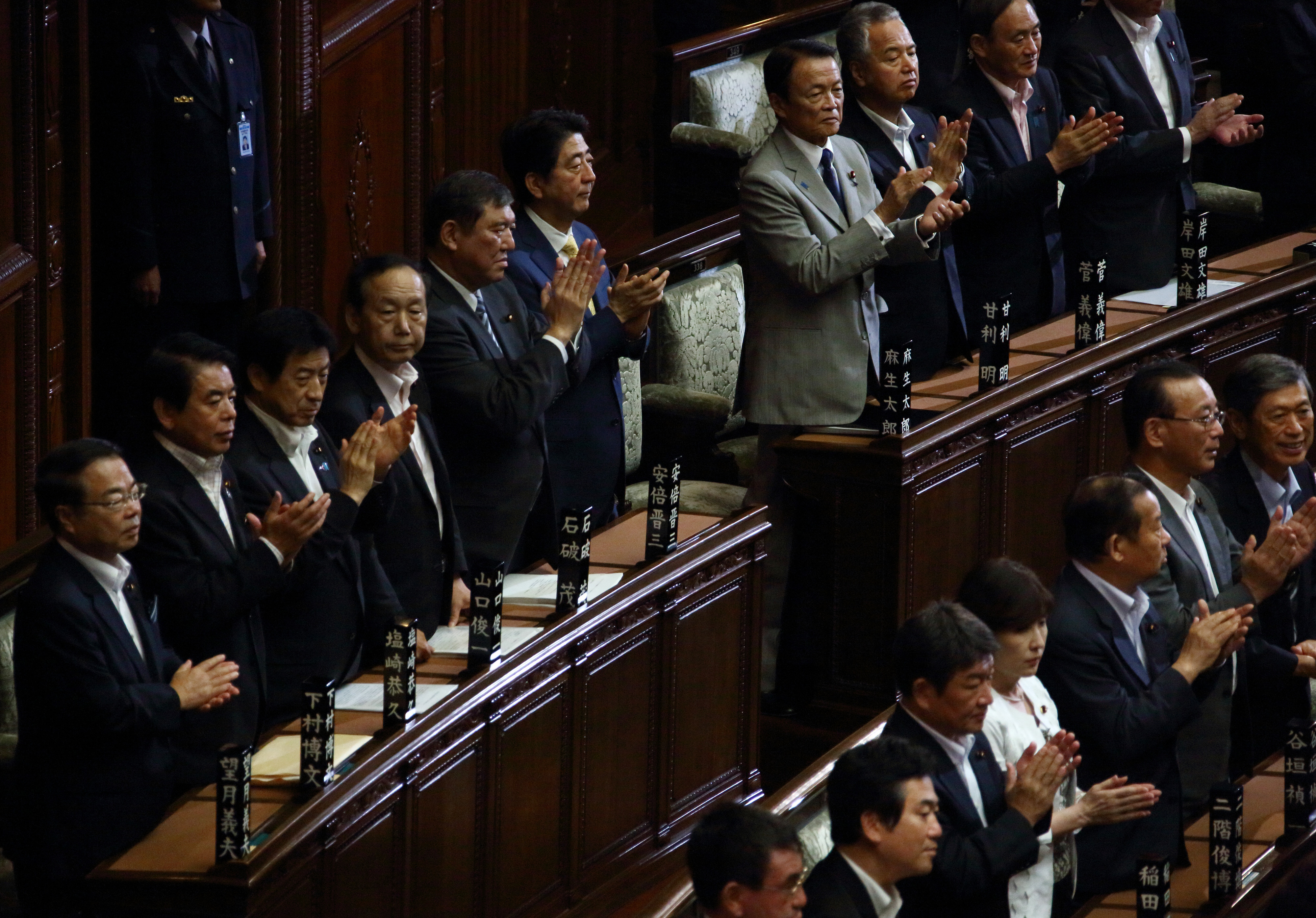Media coverage of the House of Councilors election campaign has been even more lacking in substance than usual. On July 2, Tokyo Shimbun noted how "low-key" the coverage has been on TV.
After the excitement of the money scandal surrounding former Tokyo Gov. Yoichi Masuzoe, ratings prospects for election-related news items were dim. The morning shows hardly mentioned it, and even legitimate news programs pushed reports to the end. A former NHK producer told Tokyo Shimbun that, given how the ruling Liberal Democratic Party is using the election to secure a two-thirds majority in the Diet to change the Constitution, it's essential for the media to talk about it, but, in fact, TV seems to be "avoiding the subject" out of fear of angering the LDP. As a result, LDP president and Prime Minister Shinzo Abe is, in effect, ruling the airwaves, said the producer.
This disinterest created a vaccuum that has been filled by analyses, in some media, of what the lack of concern reveals about the state of Japanese democracy. Some have made much of the fact that while the representation of women in the Diet has remained basically the same since they were given the vote right after World War II, the rest of the world has advanced in terms of greater gender parity. Japan is at the bottom of the international order when it comes to women in government, and though the ruling coalition has set a goal of ensuring women occupy 30 percent of "leadership positions" by 2020, there is little hope that today's election will get the government any closer to that target.



